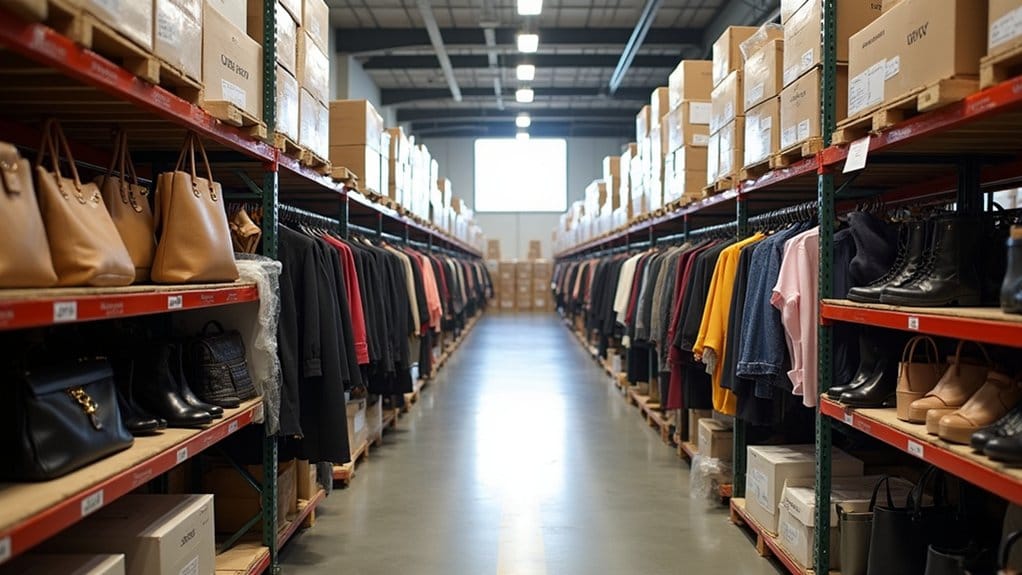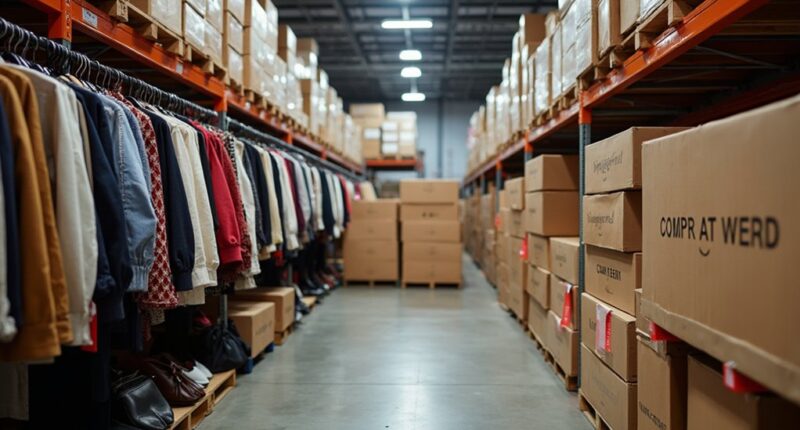While other retailers panic over tariffs, TJ Maxx and Marshalls are playing chess, not checkers. These discount giants dodge import taxes by scooping up excess inventory that’s already cleared customs. Their opportunistic buying strategy turns competitors’ trade war headaches into gold mines. They maintain prices 20-60% below retail while others struggle with rising costs. The chaos actually helps their bottom line – and that’s exactly how they planned it. The real genius behind their strategy goes deeper than smart shopping.

While most retailers scramble to dodge the impact of mounting tariffs, TJ Maxx and Marshalls are barely breaking a sweat. Their parent company, TJX Companies, isn’t just surviving the trade war – it’s thriving in it. When other retailers are sweating bullets over 30% tariffs on Chinese imports, TJX is maintaining its rosy forecast of 2-3% sales growth and healthy earnings projections. Their core business relies on buying excess merchandise directly from manufacturers and brands.
The secret? They’re not playing the same game as everyone else. While Target and other traditional retailers directly import their goods and get slapped with tariffs, TJ Maxx and Marshalls snatch up excess inventory that’s already made it through customs. They’re basically the retail equivalent of that friend who shows up fashionably late to avoid all the drama – and it’s working brilliantly. Executives remain confident they can achieve their projected diluted EPS of $4.43 despite ongoing trade pressures.
Their “opportunistic buying” strategy turns other retailers’ headaches into gold. When trade tensions cause supply chain disruptions or canceled orders, TJX swoops in to grab the merchandise. They’re like vultures circling the retail landscape, but in a good way. The company actually describes tariff-related chaos as beneficial to their business model. Talk about making lemonade from lemons.
The numbers tell the story. While Target’s executives are pulling their hair out over tariff impacts, TJX maintains its full-year forecast with almost casual confidence. They’re still offering prices 20% to 60% below regular retail, even as their competitors struggle with rising costs. It’s almost unfair.
The company’s flexible sourcing strategy and shorter lead times mean they can pivot faster than traditional retailers when trade policies shift. They’re playing chess while others are playing checkers.
And the best part? The more uncertain things get, the better their position becomes. In the world of retail tariff drama, TJ Maxx and Marshalls aren’t just surviving – they’re the ones writing the script.





